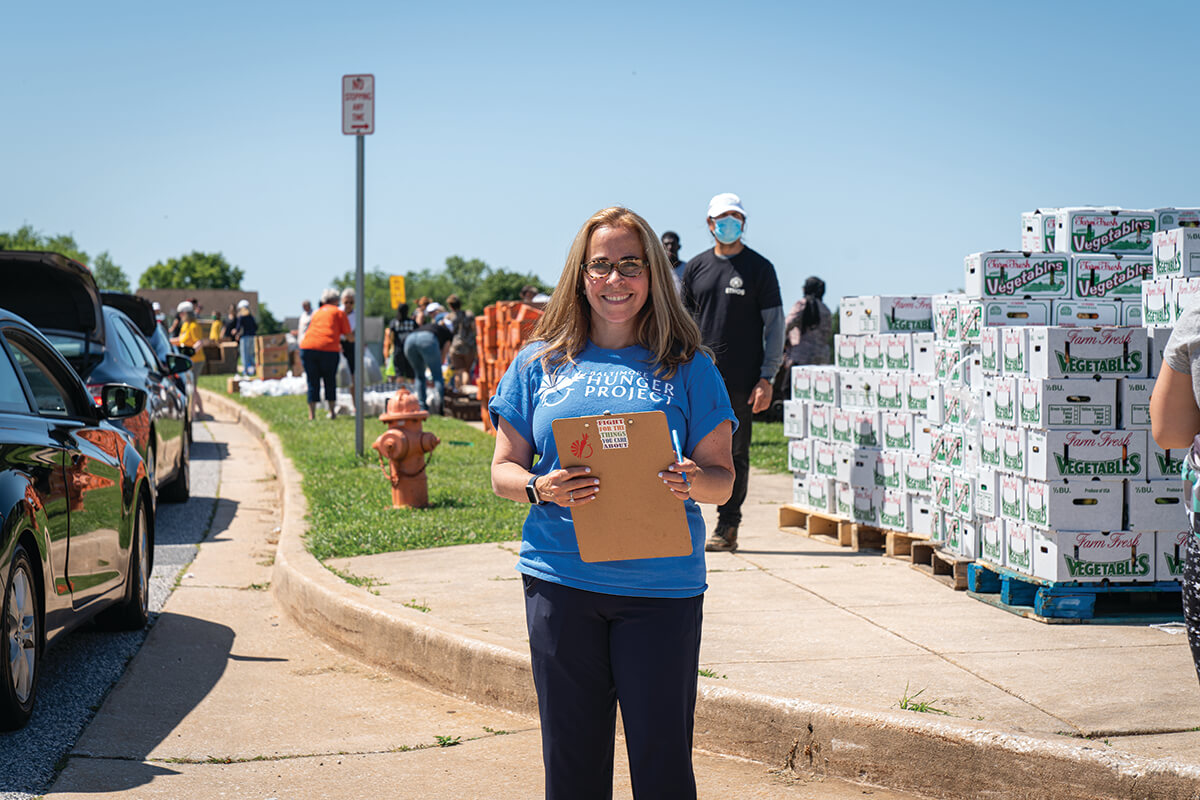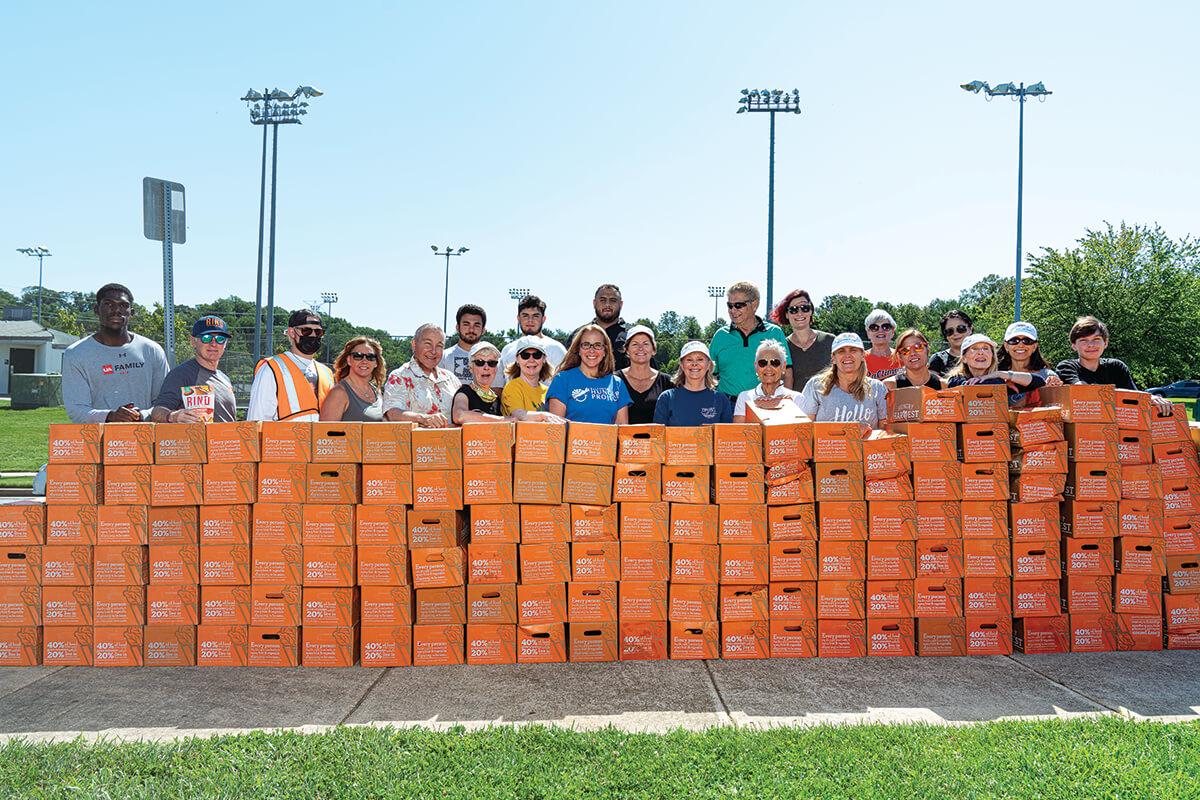GameChangers
The Baltimore Hunger Project is All About Feeding Kids
Founder Lynne B. Kahn realized that everyone was so concerned with student hunger Monday through Friday, but there wasn’t much focus on weekends.

For Lynne B. Kahn, a calling to help others started out modestly. Kahn had heard about women and children in homeless shelters who were “food insecure”—meaning they could not rely on regular meals.
So, in 2005, she and a couple friends started Lynne’s Garage, distributing 250 bagged lunches one Sunday a month to kids in need. Of course, for the children, getting the food was great. “But just as important was what the moms told us month after month, ‘Having the brown paper bag lunches made the children feel just like their peers,’” says Kahn.
Kahn came to realize that while everyone was so concerned with hunger Monday through Friday, there wasn’t much focus on weekends. Kahn’s solution was to launch Baltimore Hunger Project (BHP) in 2014. “Solving poverty is complex, but feeding children is not,” she says.
At the outset, BHP supported 30 children in two schools with the guidance counselors and principals identifying the children who were food-insecure. Each Friday, they delivered the food, plus notes of encouragement, to the students. The guidance counselors would slip the food into the children’s backpacks.
“It was especially important to do this discreetly,” says Kahn. “What makes BHP successful and relatable is that we have a simple mission. We see a hungry kid and we feed them and do it well.”

Before the schools shut down in March 2020, BHP was supporting 650 children in 24 schools. “Once the governor announced the shutdown, we quickly pivoted to setting up distribution sites at nine schools in Baltimore County.”
Families were given fresh produce, eggs, bread, and more. No matter the weather, every Friday, BHP was there supporting 1,500 to 2,000 families.
Critical to making the program work is the Maryland Food Bank, which provides most of the food, purchased with money BHP raises. Additionally, local businesses were generous with donations in kind.
“During this time, we got to meet the most amazing people,” Kahn says. “We had one gentleman from Nigeria who had lost his job when the pandemic hit and had been coming weekly for food. He asked if he could volunteer. We have about 100 volunteers. He told us that losing his job was the lowest point of
his life but volunteering helped give him back the joy he had.”
Of course, when schools fully re-open, BHP will resume feeding students on weekends. “I thought a lot about if we would continue giving food away to parents when schools reopens,” says Kahn. “But I was comforted knowing that the schools would resume providing breakfast and lunch school days.”
And in July, BHP moved to a larger warehouse, almost tripling its space, enabling it to serve many more kids every weekend. “Our biggest challenge is making sure people realize that childhood hunger exists in their neighborhoods,” says Kahn. “The thing about hunger is that it’s invisible.”